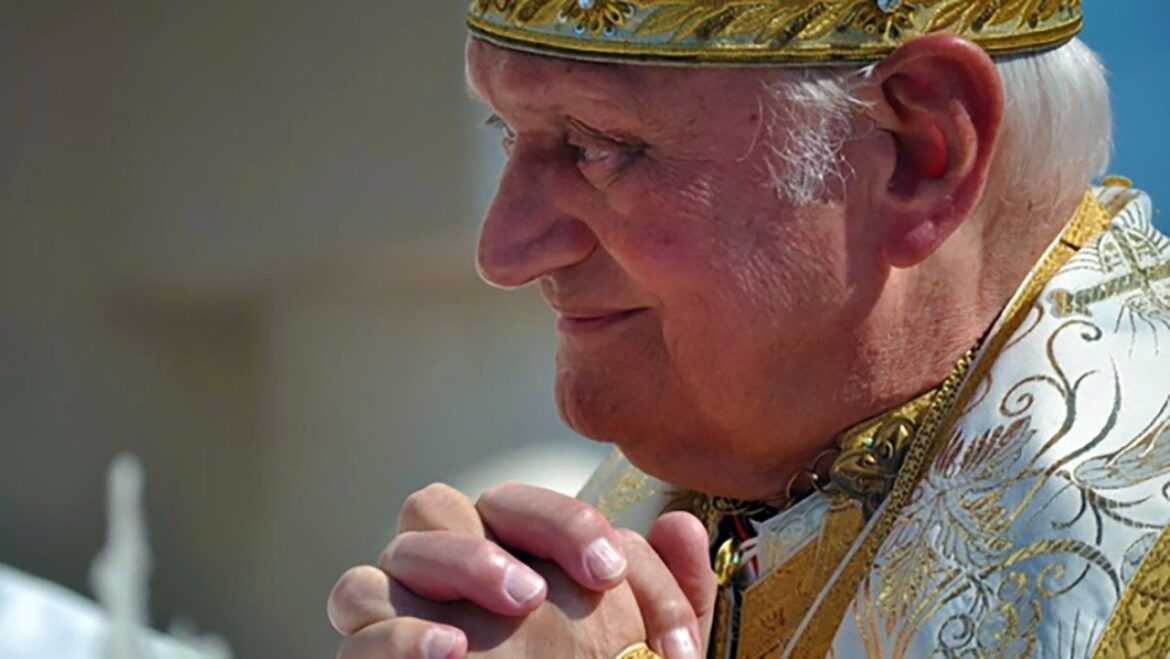
Cardinal Lucian Mureşan, Major Archbishop of the Romanian Greek-Catholic Church, died on 25 September in Blaj at the age of 94. Pope Benedict XVI created him a cardinal in 2012.
By Vatican News
Lucian Mureşan was born on 23 May 1931 in Transylvania, in a family of twelve children. When the communist regime abolished the Greek-Catholic Church in 1948, he was forced to abandon his high school studies and train as a carpenter, while continuing his education privately. Declared “undesirable” as a Greek-Catholic, he was sent to work on the construction site of Romania’s first hydroelectric plant.
In 1955, Bishop Márton Áron exceptionally admitted five young Greek-Catholics to the Latin-rite seminary of Alba Iulia, and Mureşan was among them. Yet in his fourth year, he was expelled by the Department of Religious Affairs and placed under police surveillance. For the next decade, he worked in road and bridge maintenance while pursuing clandestine theological studies.
Priest in secrecy
On 19 December 1964, after receiving a special pardon, Mureşan was secretly ordained a priest by Bishop Ioan Dragomir, auxiliary of Maramureş. He ministered in hiding, with particular dedication to youth and vocations. Following Bishop Dragomir’s death in 1986, he became the clandestine leader of the Eparchy of Maramureş, continuing to sustain the faith of his people under repression.
Return to public ministry
The revolution of 1989 and the collapse of communism allowed the Greek-Catholic Church to emerge from the underground. On 14 March 1990, St. John Paul II appointed Lucian Mureşan Bishop of Maramureş, and he was consecrated by Cardinal Alexandru Todea. Four years later, in 1994, he succeeded Todea as Metropolitan Archbishop of Făgăraş and Alba Iulia.
In 2005, Pope Benedict XVI elevated the Metropolitan Church of Făgăraş and Alba Iulia to the status of Major Archepiscopal See, appointing Mureşan as its first Major Archbishop. He would guide his Church during the delicate years of rebuilding structures, reclaiming churches, and restoring unity among the faithful.
Service to the Universal Church
Cardinal Mureşan also served the wider Catholic community in Romania, leading the Episcopal Conference at various times between 1998 and 2012. In 2012, at the age of 80, he was created cardinal by Benedict XVI and received the title of Sant’Atanasio. He later became a member of the Dicastery for the Eastern Churches, offering his experience to the universal Church.
Legacy of witness
In one of his last public interventions, Cardinal Mureşan sent a message for the commemoration of Blessed Cardinal Iuliu Hossu, the Greek-Catholic bishop who suffered imprisonment and persecution for the faith. Remembering his personal encounter with Hossu in forced residence, Mureşan spoke of his “friendship with God and with all people, beyond religion or ethnicity,” and his strength to forgive his persecutors.

